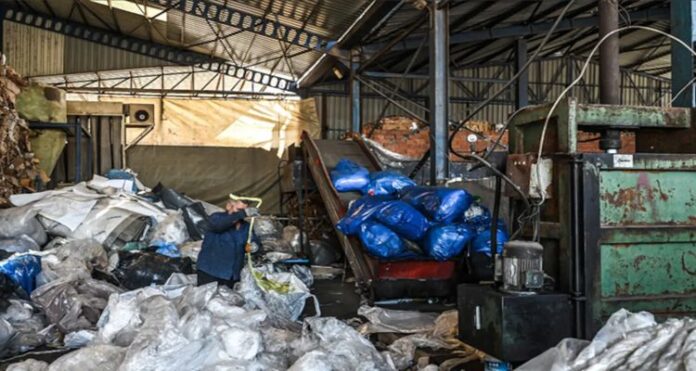| Translate This News In |
|---|
In Turkey, the number of fires in plastic recycling centers has increased dramatically.
Experts and activists believe it isn’t a coincidence, and that some business owners want to get rid of unnecessary garbage, which is sometimes imported from Europe. One of these sites was closed by the officials in December in Kartepe, a mining town in the country’s northwest after three fires broke out in less than a month. One burned for more than 50 hours, spouting toxic black smoke over the region sandwiched between the mountain ranges and the Sea of Marmara.
“We don’t want our lakes and artesian wells polluted,” said Beyhan Korkmaz, a city environmental activist.
She is worried about the polluting dioxin emission levels from a dozen similar fires in less than two years within a five-kilometer (three-mile) radius.
“Should we put on masks?” she wondered.
Last year, on average, a fire broke out every three days in Turkey’s plastic reprocessing plants. According to Sedat Gundogdu, a professor company that specializes in plastic pollution at Cukurova University in the southern city of Adana, the number increased from 33 in 2019 to 121 in 2021.
‘Plastic lobbying’
During the same time period, Turkey surpassed Malaysia as the leading importer of European plastic waste after China joined imports at the start of 2018.
According to statistics collected by the Turkish branch of the NGO Greenpeace, nearly 520,000 tonnes showed up in Turkey in 2021, adding to the country’s annual production of four to six million tonnes.
Much of this ends up in landfills in the country’s south, particularly in Adana province, where illegal businesses have been shut down in recent years.
Other containers arrive at the western ports of Izmir and Izmit, not far from Kartepe.
“The problem is not importing plastic from Europe; the problem is having to import non-recyclable or residual plastics,” said Baris Calli, an environmental engineering professor at Istanbul’s Marmara University.
“My gut feeling is that the majority of these fires are not a coincidence,” he said.
According to him, only 20 to 30 percent of foreign-made plastic waste is recyclable.
“The remaining residues should be sent to incineration plants, but incineration plants charge some money… so when some businesses have significant amounts of residues on their hands, they try to find some easy way to get rid of them,” he explained.
Gundogdu finds it odd that “most of these fires happen at night” and in reprocessing centers’ outlying storage sections, away from the machines.
Interpol, the international police organization, expressed concern in an August 2020 report about “an increase in illegal waste fires and landfills in Europe and Asia,” citing Turkey.
Companies in the sector found to be guilty of arson may have their permits revoked under an October 2021 regulation.
When AFP asked how many companies had been sanctioned, the environment ministry and the vice-president of the Union of Chambers of Commerce of Turkey did not respond.
“The ministry cannot investigate thoroughly, or perhaps they do not want to find out,” Calli explained.
He claimed that the plastic industry lobby in Turkey has grown stronger in recent years. According to the Turkish recyclers’ association GEKADER, the waste plastic sector generates $1 billion per year and employs 350,000 people across 1,300 businesses.


















